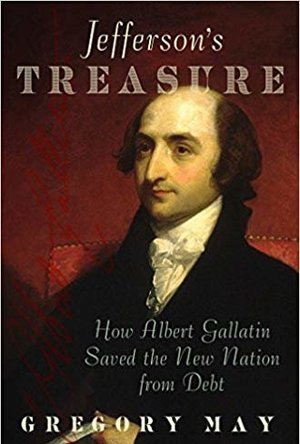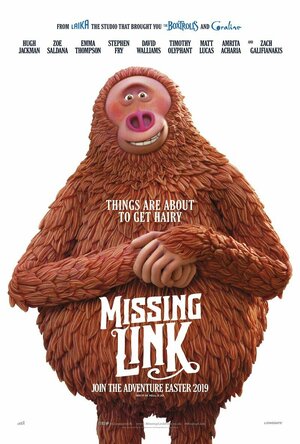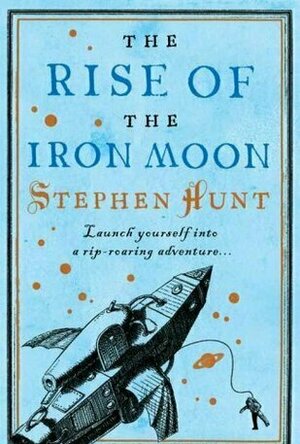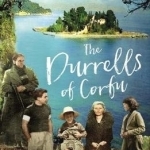Search
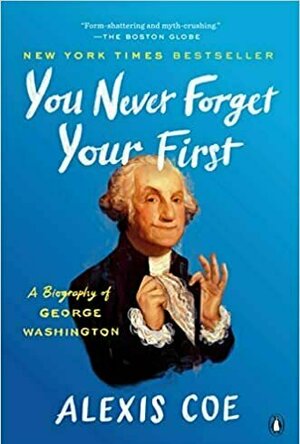
You Never Forget Your First: A Biography of George Washington
Book
AN INSTANT NEW YORK TIMES BESTSELLER AN NPR CONCIERGE BEST BOOK OF THE YEAR "In her...
Sassy Brit (97 KP) rated Jefferson's Treasure: How Albert Gallatin Saved the New Nation from Debt in Books
Jun 5, 2019
Jefferson’s Treasure, by Gregory May, details, “how Albert Gallatin saved the new nation from debt.” Appointed by President Thomas Jefferson to be his Treasury Secretary, Gallatin continued under President Madison, maintaining that position for twelve years. During his tenure, he abolished internal revenue taxes in peacetime, slashed federal spending, and repaid half of the national debt.
So who was this man that undid Alexander Hamilton’s fiscal system, rejecting it along with Madison and Jefferson? Because both Presidents did not understand the financial system, they depended on Gallatin to reform it. Gallatin arrived in America in 1790 from Geneva and rose up to become a trusted advisor of the Republicans. Six years before Jefferson was elected President, Gallatin’s Pennsylvania neighbors rebelled against the tax on whiskey. He supported them in principle but opposed the violence that ensued, burning the local tax collector’s house, robbing the mail, and marching on Pittsburgh.
The play “Hamilton” uses revisionist history. The real Hamilton believed in big government and wanted to continue funding federal deficits. He based his theories on the British who used the money to fund their large military conflicts, believing that the ability to borrow endless amounts of money would allow the new United States to become a great nation. Jefferson and Madison thought Hamilton’s system, straight from the British way, was tainted with tyranny. As May noted, “It made the people pay obnoxious taxes in order to fund interest payments on a mounting federal debt and the costs of an expensive military establishment. It shifted money from ordinary taxpayers to the relatively few rich men who held the government’s bonds. That was just the sort of thing that had led Americans to revolt against Britain in the first place.”
May believes, “The hip-hop immigrant hero of the Broadway musical is a myth. The musical might be a great work of art, but is relies on misconceptions of Hamilton. He was not an immigrant, but a migrant within the British Empire. Also, he was not a man of the people, as Gallatin was, but an elitist.”
While Hamilton committed to paying only the interest on the government’s debt, Gallatin committed the government to repaying fixed amounts of the principal each year. He also insisted that the government should never spend more than it earned except in times of war. By slashing federal expenses, Gallatin was able to get rid of the tax on whiskey and abolish the entire internal revenue service.
The Republicans, an agrarian society, distrusted these elitists where two-thirds of the government debt belonged to a few hundred very wealthy men residing mainly in Philadelphia, New York, and other mercantile cities. They saw Hamilton’s plan of collecting taxes from ordinary citizens as a way for a few rich men to become even wealthier. Implementing these excise taxes required government officials to inspect, quantify, and mark the items subject to tax.
The Hamilton system benefited the wealthy debt holders and spectators at the expense of the average taxpayer who had to pay the interest. The government would borrow more than the people could pay. Hamilton tried to hide how much money the government was actually spending and spiraled the debt higher and higher.
This was an important part of the British tax base, and “I wanted to show how unpopular it was. Hamilton and company were resented because they created a tax collection network that affected the lives of ordinary citizens. The excise tax is a form of internal taxation, while tariffs are a form of external taxation that fell on the well to do. Remember mostly the well to do bought imports. The Republicans once they came to power relied on import duties rather than excise taxes.”
May further explained, “When Jefferson and his administration came to power it was Gallatin who got rid of Hamilton’s deficit finance system and cut taxes. By the time he has left office he has repaid half the federal debt and set up a program for repaying the rest.”
Anyone who wants to understand the early economic systems of the Founding Fathers will enjoy this book. It shows how Gallatin, by killing Hamilton’s financial system, abolished internal revenue taxes in peacetime, slashed federal spending, and repaid half of the national debt.
So who was this man that undid Alexander Hamilton’s fiscal system, rejecting it along with Madison and Jefferson? Because both Presidents did not understand the financial system, they depended on Gallatin to reform it. Gallatin arrived in America in 1790 from Geneva and rose up to become a trusted advisor of the Republicans. Six years before Jefferson was elected President, Gallatin’s Pennsylvania neighbors rebelled against the tax on whiskey. He supported them in principle but opposed the violence that ensued, burning the local tax collector’s house, robbing the mail, and marching on Pittsburgh.
The play “Hamilton” uses revisionist history. The real Hamilton believed in big government and wanted to continue funding federal deficits. He based his theories on the British who used the money to fund their large military conflicts, believing that the ability to borrow endless amounts of money would allow the new United States to become a great nation. Jefferson and Madison thought Hamilton’s system, straight from the British way, was tainted with tyranny. As May noted, “It made the people pay obnoxious taxes in order to fund interest payments on a mounting federal debt and the costs of an expensive military establishment. It shifted money from ordinary taxpayers to the relatively few rich men who held the government’s bonds. That was just the sort of thing that had led Americans to revolt against Britain in the first place.”
May believes, “The hip-hop immigrant hero of the Broadway musical is a myth. The musical might be a great work of art, but is relies on misconceptions of Hamilton. He was not an immigrant, but a migrant within the British Empire. Also, he was not a man of the people, as Gallatin was, but an elitist.”
While Hamilton committed to paying only the interest on the government’s debt, Gallatin committed the government to repaying fixed amounts of the principal each year. He also insisted that the government should never spend more than it earned except in times of war. By slashing federal expenses, Gallatin was able to get rid of the tax on whiskey and abolish the entire internal revenue service.
The Republicans, an agrarian society, distrusted these elitists where two-thirds of the government debt belonged to a few hundred very wealthy men residing mainly in Philadelphia, New York, and other mercantile cities. They saw Hamilton’s plan of collecting taxes from ordinary citizens as a way for a few rich men to become even wealthier. Implementing these excise taxes required government officials to inspect, quantify, and mark the items subject to tax.
The Hamilton system benefited the wealthy debt holders and spectators at the expense of the average taxpayer who had to pay the interest. The government would borrow more than the people could pay. Hamilton tried to hide how much money the government was actually spending and spiraled the debt higher and higher.
This was an important part of the British tax base, and “I wanted to show how unpopular it was. Hamilton and company were resented because they created a tax collection network that affected the lives of ordinary citizens. The excise tax is a form of internal taxation, while tariffs are a form of external taxation that fell on the well to do. Remember mostly the well to do bought imports. The Republicans once they came to power relied on import duties rather than excise taxes.”
May further explained, “When Jefferson and his administration came to power it was Gallatin who got rid of Hamilton’s deficit finance system and cut taxes. By the time he has left office he has repaid half the federal debt and set up a program for repaying the rest.”
Anyone who wants to understand the early economic systems of the Founding Fathers will enjoy this book. It shows how Gallatin, by killing Hamilton’s financial system, abolished internal revenue taxes in peacetime, slashed federal spending, and repaid half of the national debt.
Dale Lawson (13 KP) rated Missing Link (2019) in Movies
Feb 29, 2020
Animation Style (3 more)
Character development
Voice Acting
Hilarity
An adventurous, family-friendly animation.
After winning the BAFTA for best animated feature, my interest in seeing this film rose. As it is conveniently found on Netflix, we watched it as a family for a ‘movie night’. I was prepared for a mediocre adventure in search of a missing link between man and ape. What you actually get is a heartfelt, quintessentially British, global adventure in search of a home for a lonely Sasquatch. The journey each character goes through is wonderful as they learn about family, friendships and individuality before conquering the villain.
With a high calibre cast, this film is full of seasoned voice actors. So much so that it is actually difficult to identify the owner of each voice until the credits roll. This, for the most part, makes the film even more enjoyable as you aren’t left guessing actors or imagining them in the role.
Beginning with two characters on a quest for the Loch Ness Monster, the story is full of mystery and myth. It then becomes a predictable one, when it gets into its flow. For an adult, this can make the film a little expected. However, for a child this film is filled with hilarity. When watching with my three kids, there was non-stop laughter. From the naming of the Sasquatch to him forgetting swimwear, the room was full of joy.
Animation has always been a passion of mine, since I was young: from hand drawn to computer generated. My favourite had always been stop motion. Missing Link is primarily filmed in stop motion, using new techniques that allow for smoother facial transitions. The film’s adventurous nature encourages for exciting sets and explosive additional CGI that makes the film feel incredibly polished.
Captivating the attention of adults and children, alike, Missing Link provides an animated, family friendly adventure that teaches morals and respect. I can see why it won so many awards and challenges Toy Story 4 for the top place.
With a high calibre cast, this film is full of seasoned voice actors. So much so that it is actually difficult to identify the owner of each voice until the credits roll. This, for the most part, makes the film even more enjoyable as you aren’t left guessing actors or imagining them in the role.
Beginning with two characters on a quest for the Loch Ness Monster, the story is full of mystery and myth. It then becomes a predictable one, when it gets into its flow. For an adult, this can make the film a little expected. However, for a child this film is filled with hilarity. When watching with my three kids, there was non-stop laughter. From the naming of the Sasquatch to him forgetting swimwear, the room was full of joy.
Animation has always been a passion of mine, since I was young: from hand drawn to computer generated. My favourite had always been stop motion. Missing Link is primarily filmed in stop motion, using new techniques that allow for smoother facial transitions. The film’s adventurous nature encourages for exciting sets and explosive additional CGI that makes the film feel incredibly polished.
Captivating the attention of adults and children, alike, Missing Link provides an animated, family friendly adventure that teaches morals and respect. I can see why it won so many awards and challenges Toy Story 4 for the top place.
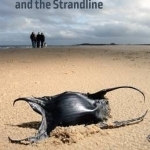
The Essential Guide to Beachcombing and the Strandline
Steve Trewhella and Julie Hatcher
Book
From time immemorial people have been drawn to the beach to collect practical resources as well as...
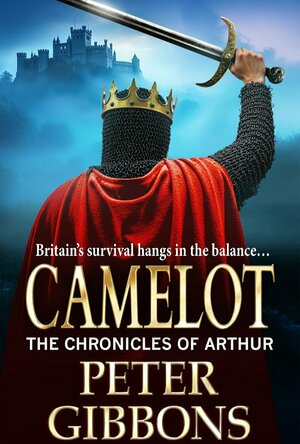
Camelot (The Chronicles of Arthur, #3)
Book
Brand new epic adventure from bestselling author Peter Gibbons! Must-read for fans of Bernard...
Phil Leader (619 KP) rated The Rise of the Iron Moon (Jackelian #3) in Books
Nov 25, 2019
This book looked interesting so I picked it up. I'd not heard of Stephen Hunt or this series but the premise intrigued me.
Although this is the third book of the series and there are plenty of references to events that must take place in the previous books, and despite the writing being immersive rather than explanatory, I found it easy to get into the story.
The world is very interesting. I have read other novels set in a faux Victorian Steampunk-like world but nothing like this. This is like an alternative history, extremely divergeant from ours but with enough similarities that the combination is quite striking.
For example there was a civil war in the past which parliament won, as in the 'real' British history. However all of the royals have been locked up ever since in the Royal Breeding House - kept as figureheads under constant house arrest and threat of execution at the whim of parliament to appease the masses.
There are also countries ruled by thinking, steam driven machines. Others beneath the waves or living strictly by some political principal.
However the world is under threat. All the countries are being slowly invaded from the North by a very aggressive foe. Under attack the land of Jackals itself calls on its heroes to save the day. Purity Blake, one of the inmates of the Royal Breeding House. Molly Templar, writer of penny dreadful science fiction stories and sometimes defender of the land. Coppertracks, a machine life steam man and scientist. Their companions must overcome impossible odds and put aside the enmity between nations to fight off the attackers. Against all the odds, can they succeed?
The book is a little slow to start up, as the characters are introduced in their diverse environments. But slowly the threads are drawn together and each play their part in the fight. And as they begin to weave into the plot the pace quickens. The story twists and turns, always astonishing in its concept and direction.
The outstanding part of this book is the imagination that has gone into it. Nearly everything is completely different from our world and yet it ties together convincingly into a land both of industry and grime, poverty and privilege but also of very real myth and legend.
The ending is a little bit Deus Ex Machina but really this fits in with the tone quite well and at least keeps the pace up in the final pages. There are enough wonderful and fantastic ideas let loose to wander around in this book for several novels.
Definitely a recommended book. I now need to search out the first book - The Court Of The Air - so I can find out what has happened to the characters before.
Although this is the third book of the series and there are plenty of references to events that must take place in the previous books, and despite the writing being immersive rather than explanatory, I found it easy to get into the story.
The world is very interesting. I have read other novels set in a faux Victorian Steampunk-like world but nothing like this. This is like an alternative history, extremely divergeant from ours but with enough similarities that the combination is quite striking.
For example there was a civil war in the past which parliament won, as in the 'real' British history. However all of the royals have been locked up ever since in the Royal Breeding House - kept as figureheads under constant house arrest and threat of execution at the whim of parliament to appease the masses.
There are also countries ruled by thinking, steam driven machines. Others beneath the waves or living strictly by some political principal.
However the world is under threat. All the countries are being slowly invaded from the North by a very aggressive foe. Under attack the land of Jackals itself calls on its heroes to save the day. Purity Blake, one of the inmates of the Royal Breeding House. Molly Templar, writer of penny dreadful science fiction stories and sometimes defender of the land. Coppertracks, a machine life steam man and scientist. Their companions must overcome impossible odds and put aside the enmity between nations to fight off the attackers. Against all the odds, can they succeed?
The book is a little slow to start up, as the characters are introduced in their diverse environments. But slowly the threads are drawn together and each play their part in the fight. And as they begin to weave into the plot the pace quickens. The story twists and turns, always astonishing in its concept and direction.
The outstanding part of this book is the imagination that has gone into it. Nearly everything is completely different from our world and yet it ties together convincingly into a land both of industry and grime, poverty and privilege but also of very real myth and legend.
The ending is a little bit Deus Ex Machina but really this fits in with the tone quite well and at least keeps the pace up in the final pages. There are enough wonderful and fantastic ideas let loose to wander around in this book for several novels.
Definitely a recommended book. I now need to search out the first book - The Court Of The Air - so I can find out what has happened to the characters before.
Mayhawke (97 KP) rated The Durrells of Corfu in Books
Feb 13, 2018
Truth Without Disenchantment
I think the first thing to note is that there is probably no point in reading this book if you haven't at the very least watched one of the T.V. series. Indeed a lot of it will probably go right over your head if you are not well-versed in Durrell's tales of his childhood in Corfu.
I am, and have been since I first picked My Family And Other Animals when I was eleven - which is longer ago now than I would really like to think about! Age aside, my point is this: I have read and loved these books many times, and for several decades. Durrell was my first 'grown up' read as a child and the Corfu trilogy has long been ranked in my 'comfort reads' - those books you turn to again and again when you just want something familiar and easy. It was with some concern, then, that I picked up the ARC of Haag's book when it landed in our staff room. I didn't want my illusions destroyed, and whilst it goes largely without saying that there was going to be some massaging of the truth in Durrell's autobiographical stories I wasn't sure that I was ready for The Truth, The Whole Truth, and Nothing But.
Haag, it turns out, is also a little bit in love with the Durrells. As such I can think of few better people to write the bald truth about this family without destroying the charm and good humour of Gerald Durrell's books for those of us who want to hold on to the myth. This delicate unravelling begins on the very first page as Haag presents the reader with the brutal and tragic truth behind the Corfu sojourn - the sudden death of Durrell Snr at the age of just forty-four. In My Family Gerald Durrell manages to skim over this uncomfortable truth with such success that he imparts the information that his mother is a widow without ever giving the reader space to think or question more deeply into the effect on the family beyond their enforced to move back to cold, rainy England - a place from which they then escaped to Corfu, so legend has it, for no more pressing reason than to avoid colds.
And so Haag's biography continues, with a gentle but unrelenting quality, to pull scales from eyes. Using tracts from Durrell's books he often does little more than a simple but effective compare and contrast with reality: introducing characters who were completely written out of the Durrell legend, yet were significant members of the Durrell collective; opening up the more Bohemian aspects of their life, and the way they were perceived by other immigrant British at the time.
Haag also exposes the more complex relationships within the family. Lawrence, who is presented through young Gerry's eyes as probably his greatest critic it transpires is his greatest champion: directing and ensuring Gerry's education whilst keeping him free of the structure and strictures of school; the somewhat sadder story of belligerent and boisterous Leslie - so much larger-than-life in the Corfu books, who later seems to become estranged from the family; and perhaps most surprising of all - Margo, who had a life that rivals either of her famous brothers for interest and adventure, at least in her younger years.
All of these uncomfortable exposes Haag achieves, and I feel far better informed about the family now, than I ever have yet never once have I felt that I will not be able to return and pick up Gerry Durrell's books and read them with the same joy and pleasure that I have done for the last four decades.
I am, and have been since I first picked My Family And Other Animals when I was eleven - which is longer ago now than I would really like to think about! Age aside, my point is this: I have read and loved these books many times, and for several decades. Durrell was my first 'grown up' read as a child and the Corfu trilogy has long been ranked in my 'comfort reads' - those books you turn to again and again when you just want something familiar and easy. It was with some concern, then, that I picked up the ARC of Haag's book when it landed in our staff room. I didn't want my illusions destroyed, and whilst it goes largely without saying that there was going to be some massaging of the truth in Durrell's autobiographical stories I wasn't sure that I was ready for The Truth, The Whole Truth, and Nothing But.
Haag, it turns out, is also a little bit in love with the Durrells. As such I can think of few better people to write the bald truth about this family without destroying the charm and good humour of Gerald Durrell's books for those of us who want to hold on to the myth. This delicate unravelling begins on the very first page as Haag presents the reader with the brutal and tragic truth behind the Corfu sojourn - the sudden death of Durrell Snr at the age of just forty-four. In My Family Gerald Durrell manages to skim over this uncomfortable truth with such success that he imparts the information that his mother is a widow without ever giving the reader space to think or question more deeply into the effect on the family beyond their enforced to move back to cold, rainy England - a place from which they then escaped to Corfu, so legend has it, for no more pressing reason than to avoid colds.
And so Haag's biography continues, with a gentle but unrelenting quality, to pull scales from eyes. Using tracts from Durrell's books he often does little more than a simple but effective compare and contrast with reality: introducing characters who were completely written out of the Durrell legend, yet were significant members of the Durrell collective; opening up the more Bohemian aspects of their life, and the way they were perceived by other immigrant British at the time.
Haag also exposes the more complex relationships within the family. Lawrence, who is presented through young Gerry's eyes as probably his greatest critic it transpires is his greatest champion: directing and ensuring Gerry's education whilst keeping him free of the structure and strictures of school; the somewhat sadder story of belligerent and boisterous Leslie - so much larger-than-life in the Corfu books, who later seems to become estranged from the family; and perhaps most surprising of all - Margo, who had a life that rivals either of her famous brothers for interest and adventure, at least in her younger years.
All of these uncomfortable exposes Haag achieves, and I feel far better informed about the family now, than I ever have yet never once have I felt that I will not be able to return and pick up Gerry Durrell's books and read them with the same joy and pleasure that I have done for the last four decades.
